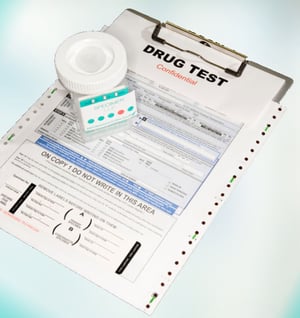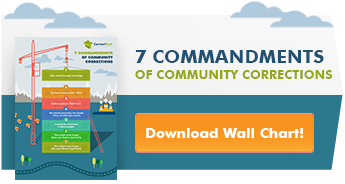 As more states fire up debate on the legalization of marijuana for recreational and medical use, the practice of drug testing in Community Corrections is coming under closer scrutiny. In February, the Philadelphia City Council convened for a hearing on bias and the ethical and practical implications of testing parolees and probationers for a substance that is fast-becoming decriminalized in many jurisdictions. Not long after that, the New York City Council passed bills prohibiting testing most job applicants for marijuana and, (hold on to your test cups) banning the testing of probationers for the substance as well.
As more states fire up debate on the legalization of marijuana for recreational and medical use, the practice of drug testing in Community Corrections is coming under closer scrutiny. In February, the Philadelphia City Council convened for a hearing on bias and the ethical and practical implications of testing parolees and probationers for a substance that is fast-becoming decriminalized in many jurisdictions. Not long after that, the New York City Council passed bills prohibiting testing most job applicants for marijuana and, (hold on to your test cups) banning the testing of probationers for the substance as well. The Philly debate questioned the legitimacy and fairness of testing for a legal substance, and punishing those who obtain it through illegal means, while giving a pass to persons who have the means to obtain a physician’s legal prescription. The dividing line between these two groups? Race and class. If marijuana is legal, why test for it at all? Eliminating testing for a legal substance might be a partial solution to ending bias and discrimination, but is it the best response?
The questions don’t stop here. Practitioners and experts in the field are asking more probing questions, to wit: How effective is routine drug testing? Is it a useful intervention tool in our quest for a panacea to addiction, or is it just another way to perpetuate the “trail ‘em, nail ‘em, and jail ‘em” mindset that hinders our progress toward criminal justice reform?
When I began my career as a Georgia parole officer more than 30 years ago, one parole condition prohibited the use of alcohol “to excess.” This condition (which was later replaced by a broader, more discretionary condition that mandated compliance with instructions from parole officials) recognized and implied that one person’s over-indulgence is another’s moderation -- even a sip of wine at dinner for an alcoholic in recovery could have disastrous consequences, while the occasional drinker could partake safely. Unfortunately, the prevailing punitive mindset of that era often led officers to err on the side of punishment and penalize any use of alcohol, regardless of demographics.
As we ponder the arguments for and against testing for legal marijuana, consider the dilemma we face now that the Opioid Monster has reared its ugly head: What do we do about the offenders who entered the criminal justice system due to addiction to legally prescribed “medication,” and continue to obtain opioids -- their drug of choice -- legally for chronic pain?
Perhaps we should set aside the legality factor for now, examine our approach to the real issues, and ask ourselves: Why do we test at all, and what is our goal? The real question is not, “To test, or not to test.” Perhaps the real question is this: What is our goal -- punitive control and containment, or efficacious deterrence and desistance?
According to a 2017 report from the Bureau of Justice Statistics, a significant number of inmates meet the criteria for drug abuse or dependence. (Bronson et al. Drug Use, Dependence, and Abuse Among State Prisoners and Jail Inmates, 2007-2009. BJA, 2017.) In light of this, if you don’t test as much, does the problem dry up? Or does it explode? (Adapted from A Dream Deferred by Langston Hughes) What message does reduced testing send to the offender and the public? On the other hand, frequent testing can also dry up funds, strain resources, be a detriment to successful reintegration, and cause jail populations to explode.
 Managing the chronic drug abuser can be a mighty frustrating task for community supervision officers - especially when faced with high caseloads and limited resources (NIJ Report: Managing Drug-Involved Offenders, Hawken, et al, 2014). Frequent drug testing, even for legal substances such as prescribed opioids and alcohol (and yes, marijuana in jurisdictions where recreational use is legal), can be a valuable supervision tool for the justice-involved population. As a parole chief, my district consistently tested a significantly higher percentage of parolees, and had a significantly lower positive rate than the rest of the State. With chronic addiction even those in recovery sometimes relapse. The certainty of frequent testing may deter those who are on the fence of temptation, and quickly identify those who fall off, thus preventing a manageable “therapeutic relapse” from becoming a full-blown crisis.
Managing the chronic drug abuser can be a mighty frustrating task for community supervision officers - especially when faced with high caseloads and limited resources (NIJ Report: Managing Drug-Involved Offenders, Hawken, et al, 2014). Frequent drug testing, even for legal substances such as prescribed opioids and alcohol (and yes, marijuana in jurisdictions where recreational use is legal), can be a valuable supervision tool for the justice-involved population. As a parole chief, my district consistently tested a significantly higher percentage of parolees, and had a significantly lower positive rate than the rest of the State. With chronic addiction even those in recovery sometimes relapse. The certainty of frequent testing may deter those who are on the fence of temptation, and quickly identify those who fall off, thus preventing a manageable “therapeutic relapse” from becoming a full-blown crisis. The problem is not with the testing. The problem is largely with the stubbornly persistent attitudes that prohibited behavior by offenders should be met with sanctions that are punitive or progressively restrictive or harsh. Sometimes it is necessary to “kick it up a notch!” as Chef Emeril Lagasse says, but that’s not always the case. Progressive or escalating sanctions are not always the best solution. Addicts are well-acquainted with consequences; they experience them almost every day as they chase that elusive high.
It would be imprudent and short-sighted to stop testing for a substance because it is declared legal, even when inappropriate responses to its (mis)use unfairly affects certain classes. Instead, we should look at the evidence of what works to change bad behavior, and provide better training for/to our front line officers on implementing those measures.
Drug and alcohol testing can be an effective - and necessary - tool when used the right way, for the right reasons, along with best and evidence-based practices.Some, such as Brian Lovins, suggest that testing be celebrated as a validation of sobriety, not exploited as a yardstick of failure. As professionals, we should strive to be more mindful of our own behavior and reframe our view of the drug test as a carrot, not a stick.
What do you think?


